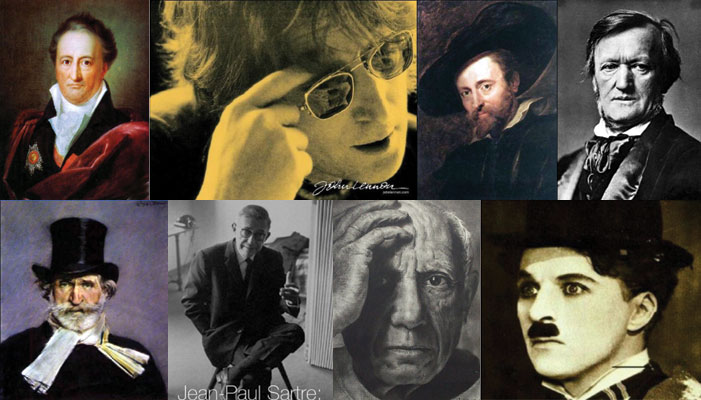Art with Politics: Inappropriate Relation or Romance?
- Review of 'Art Meets Politics' by Hong-Gyu Park -

Heung-Jae Yim
Executive director of Neo FNC / Columnist
Park, Hong-Gyu, the author of 'Art Meets Politics' is a unique person. He is a lawyer but should rather be called an art critic or art essayist. He wrote 'My Friend, Vincent','Honore V. Daumier','Goya who Painted a Savage Time', and 'Beethoven, a critical biography' with which he showed his excellent artistic sense and knowledge. He is a person really well versed in music and art.
This time, in his 'Art Meets Politics', Park is telling us about the relation of art with politics in the famous paintings of eight artists.
All art is political:
To tell of his conclusion first - all art is political! He flatly asserts that no art can be free from politics. Those painters who intentionally escaped from politics, Park insists, may be considered more political in the sense that they turn away on purpose from reality. As to the mass media, the involvement of politics in art is a must.
This does not mean that all art has become a perpetrator of or subordinate to politics and has thus experienced distortion and corruption. Since our life can't be separated from politics, art (which must be created within the bounds of our life) can't be produced or dealt with without politics either.
Park is searching for a way that true art can avoid or ignore all ideologies that block human freedom and spiritual emancipation.
"In order to establish the righteous ethics of art and politics, they should respect human values with dignity and pursue freedom, equality, peace, and the welfare of humanity. Art and politics should also be based on individualism rather than collectivism, totalitarianism, nationalism, fascism, authoritarianism, or imperialism," said Park in his new book.

The operas of Wagner are exemplars of praising the totalitarian regime to the extent that they ended up serving Hitler's Nazism. But in spite of all the political controversies, the operas are still beloved by many people simply because they are some of best-ever musical compositions. By the same token, Verdi's operas are passionately loved not only because of the unification of a divided Italy, in which they played a part, but also because they are beautiful works of art.
Art with politics: immoral or romantic?
If all art works are political, how can we talk about a 'pure art' separate from politics? Park pays attention to the way that art meets politics. In most of human history, art has been subordinated to politics rarely; being able to sustain itself independently of it, not to mention resisting it.
Goya, a Spanish painter in the 18th Century, never subjugated himself to politics. He saw the reality of his mother-country Spain without love toward Spain or hatred against the perpetrator of war, France. When an artist sees art and politics like Goya did, the combination is ethical rather than immoral.
Picasso and Honore Daumier followed the suit, which Goya exemplified. Diego Rivera had a strong political message in his works and was searching for human emancipation. These individuals are exemplars of the romance of art and politics.
Park Hong-Kyu introduces Rubes and Goethe as the artists who attained harmony between art and politics; he then introduces Wagner and Verdi, as the harmony - seekers of music.
Park examines the life of Piccaso who, as an art revolutionary, resisted the death of art; Sartre as an eternal freedom-seeker from all worldly authorities and power; and Chaplin as a free movie-maker resisting Hitler's insanity.
The message Park is trying to send us is neither art nor politics. It is something profound and wished - for deep in the human heart; and the love and respect for humans; and the emancipation and free choice from all restrictions and confinement upon human beings. This is what will bring us freedom and redemption from the evil hand of totalitarianism and nationalism.


